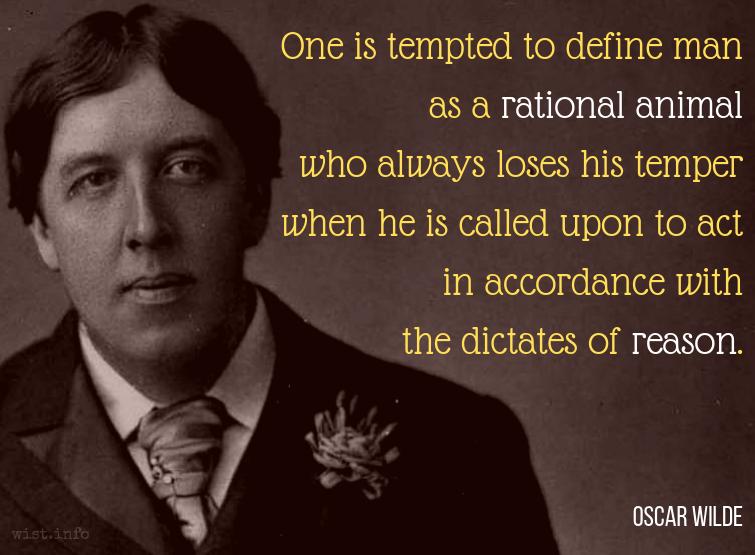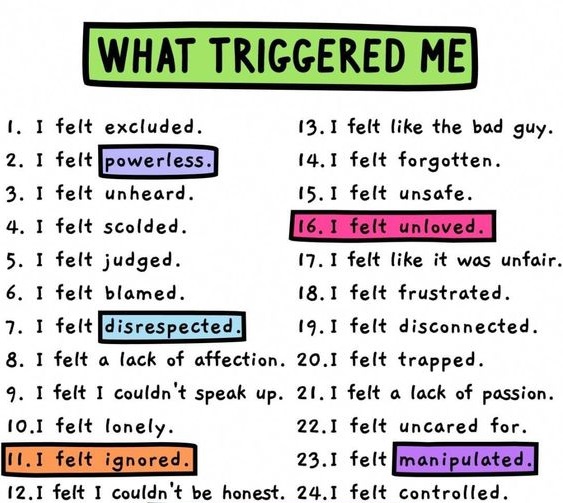
As humans, we are not born rational. It’s something that we must cultivate. Irrational behaviors can make us act rashly and impulsively. While we can’t eliminate irrationality, we can counteract its effects by becoming aware of our triggers and balancing our thoughts with our emotions. (Estimated reading time: 5 minutes)
“The fact that logic cannot satisfy us awakens an almost insatiable hunger for the irrational.”
— A. N. Wilson
We’ve all made choices that we look back on and say, “What was I thinking?!”—lapses in judgement when you said or did the wrong thing or made decisions that led nowhere.
These lapses in judgement may have caused you to question and even berate yourself. You wonder what could have caused your irrational behaviors.
If you feel this way—go easy on yourself. Even the most rational and level-headed person is prone to doing it. Despite all our intelligence, we are fallible, simply because we are human.
There was a time when human fallibility was not acknowledged, and our ability to reason was seen as the defining feature of our species. The ancient Greek philosopher Aristotle described mankind as a “rational animal,” and with this special gift, unlike other creatures, we have the capacity to decide what is good and bad. This was supported by the Age of Enlightenment philosophers like John Locke.
Yet, both history and current events have shown us that human rationality is not a given. Since the days of brutal combat between ancient kingdoms due to conflicting ideologies, to the Twitter mobs and the support of fascist regimes we see today, there are many holes in our ability to reason that cause irrational behaviors.

Most of us are largely unaware of just how much our emotions and basic instincts (like our need for attention, money, and power), can influence our reasoning. Psychologist Daniel Kahneman proved this in the 1970’s when he ran a series of renowned experiments that revealed “cognitive biases” – unconscious errors we make that distort our judgement.
This should matter to us because any belief based on our blind spots, can cloud our perception of reality. It plays out in virtually every area of our lives. It causes us to make impulse purchases that affect our finances, it can make us overlook the red flags in the early stages of a relationship, and it can make us invest money in doomed ventures.
On a broader scale, our cognitive biases make us easy prey to cult-like institutions and leaders who use inflammatory words to incite hatred and violence in our communities. It can convince us to accept outlandish theories, from the Earth being flat, to climate change being a hoax or myths that deceased icons like Elvis Presley are still alive.
We’re vulnerable to delusion because we’re not born rational—it’s something we need to cultivate. Irrationality is wired into our very nature and is a product of our brain structure.
It’s not easy to sync the neocortex (the part that rules logic and language), with the limbic part of our brain (the area that rules emotions and feelings). When both parts are uncoordinated, we feel conflicted and experience fear and anxiety, even when there is no real danger.

While we can’t completely eliminate irrationality, we can counteract its effects by becoming aware of what causes it. Only then can we take steps to balance our emotions with logic. Through introspection, you’ll develop self-control that will prevent you from rushing into action, or buying into the words of others, without carefully considering potential outcomes.
There are two leading causes of irrationality: biases and emotional triggers.
Here are six common biases or heuristics that you should watch out for:
- Availability heuristic
- Representativeness heuristics
- Anchoring and adjustment heuristics
- Affect heuristic
- Social proof
- Scarcity heuristic
(Read a full description of each heuristic in this previous article.)
Emotional triggers can cause us to be reactive and take rash action and make impulsive choices that we later regret. Triggers include circumstances or people that get under your skin and bring up high arousal emotions such as anger, excitement, and fear. In situations like this, we get so caught up in the moment that we lose our minds and become overcome by our emotions.
Some common triggers that lead to this state are:
- Mental health issues and mood swings
- Toxic substances such as alcohol, nicotine, and drugs
- Childhood trauma
- High-pressure situations
- Fear of loss
- Overoptimism
- Seditious or triggering people and leaders

Knowing these potential weak spots makes it easier to fix irrationality wherever it crops up.
A rational mindset does not mean that we completely discount our feelings. Instead, we must channel our passions and impulses to serve our thinking self.
Here are some ways that you can do this and overcome irrational behaviors:
1. Confront your triggers from unresolved issues: Whenever you experience uncomfortable emotions such as envy or anger, take a deeper look at where it’s coming from. Record your observations in a journal or speak with the neutral person about it. Shedding light on your triggers from unresolved issues makes you less vulnerable to control and manipulation.
2. View situations and people with some detachment: The more attached you are to an outcome or a person, the more likely you are to act irrationally when things don’t turn out in your favor. Adding distance allows you to observe and understand situations on a deeper level. Another way to add distance is by taking time to react when you feel triggered.
3. Only deal with the truth: Dealing with the truth means that you look reality square in the eye, no matter how harsh it is. You deal with facts, not with false opinions and arbitrary beliefs. Deluding yourself may temporarily comfort you, but in the long run, dealing with the truth is healthier and takes you further in life.
4. Find a balance between your thoughts and emotions: It’s impossible to separate our thoughts from our emotions; instead, we must make them work together. The relationship between our rational side’s reasoning powers and our emotions’ instinctive side is like the relationship between a rider and his horse. Through practice, the rider (thoughts), guides the horse (emotions), to create directed movement in the right direction.
Mythical figures and deities like the Goddesses Sarasvati and Athena have long been an inspiration for those looking to promote rational intelligence in their world. Even if you don’t worship them, you can use them (or other archetypes of balanced rationality), as inspiration to internalize the power of reason and use your practical powers to create positive change.
All my best on your journey,
Seline

Question for you: What tends to cause you to act irrationally? How can you become more aware of your triggers, now that you‘re aware of irrational behaviors?
Did you like this post? Sign up below, and I’ll send you more awesome posts like this every week.

Hey Seline — I think part of it has to do with how we have either trained ourselves or been trained over the years by society to see acceptable and unacceptable. We try to fit in and be how others want us to be. We bend over backward to fit into a mold and ideal of what society and family and friends, and everyone else sees as being acceptable.
Maybe it is that mold and viewpoint that is skewed and maybe that is contributing to us to seemingly be so irrational at times?